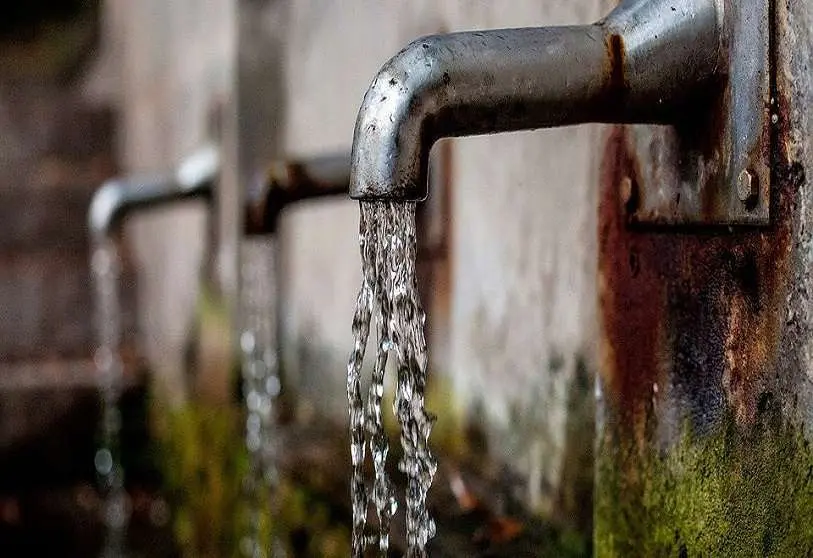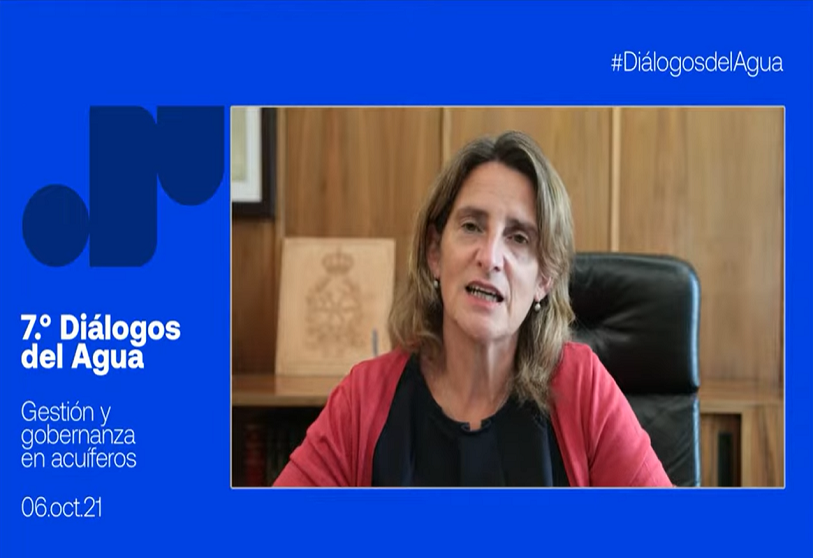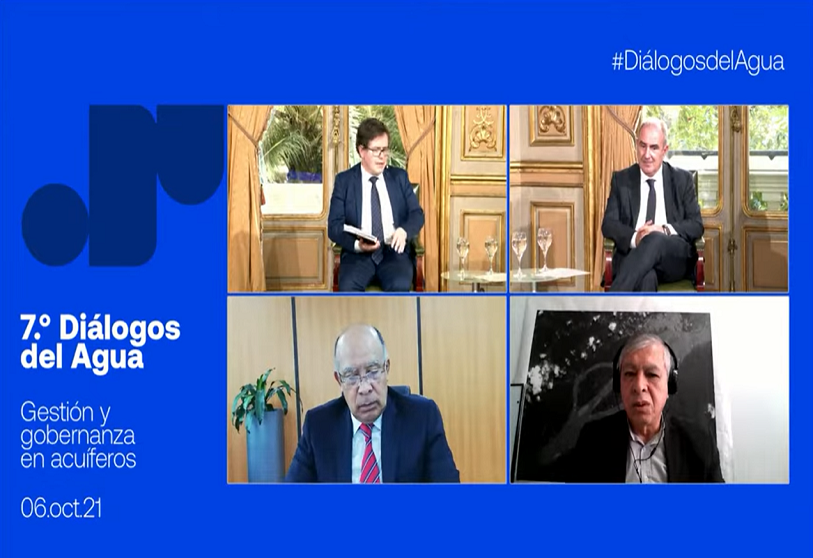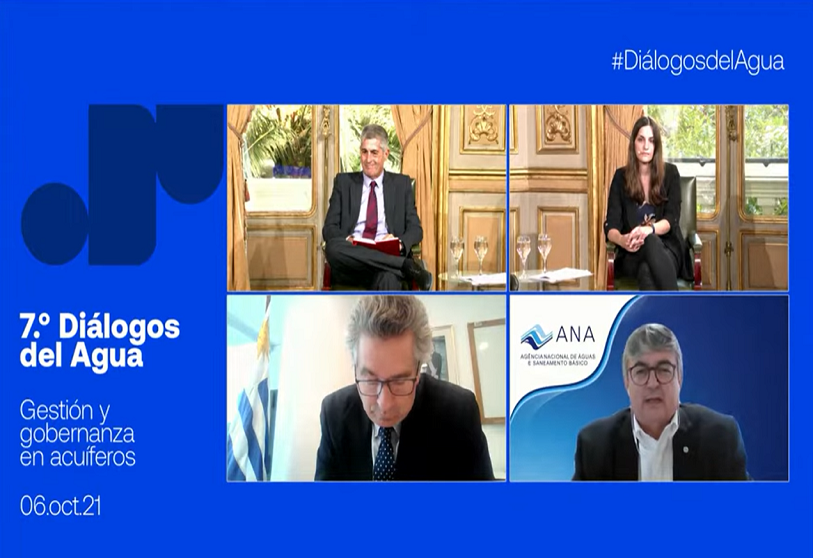Hydrodiplomacy and aquifers: the importance of water resources

Water resources know no borders or geopolitics. Water, considered an imperishable commodity, is far from lending itself to this concept, and its sustainable use is increasingly posing challenges and threats to states. Its scarcity is framed by the loss of many natural resources as a result of human misuse and, above all, inaction in the face of climate change.
In order to establish a dialogue on the problems that arise in local and transboundary aquifers, the main source of the water used by humans, CAF has organised this Wednesday 'The 7th edition of Water Dialogues', an event dedicated to sharing strategies and solutions at an international level that allow for the coordination of a joint response to the water challenge.

CAF's executive president, Sergio Díaz-Granados, opened the event by stressing that the world "is beginning to recover" from the COVID-19 pandemic. A pandemic for which the main front has been hand washing with soap and water, as he recalled, however, this access to drinking water and sanitation has been complex in several parts of the world. Díaz-Granados pointed out that only 1% of available fresh water flows through rivers and lakes, and that human action has led to an average rise in temperatures and an increase in flooding, records that make the role of aquifers essential.
The president also added the concept of hydrodiplomacy, a diplomatic channel that will gain weight in the coming years and which revolves around water resources. In this sense, CAF has supported the initiatives of several Latin American states that seek to preserve their aquifers and natural reserves. "At CAF we have set out to become the green bank of the Latin American region, which means significantly increasing environmental financing from the current 26% to 40% in 2026, in this way we will promote a greener, more inclusive and people-focused region," said the president.

The third vice-president and minister for Ecological Transition and the Demographic Challenge of the Spanish Government, Teresa Ribera, stressed the importance of aquifers and their corresponding transparency and knowledge plan to provide the public with information on the current state of groundwater. The minister also detailed the imminent action plan that the government is preparing to improve and recover the poor state of national facilities, in which 40% of aquifers are not in optimal condition. Ultimately, Ribera stressed the importance of deploying a cross-border governance plan and deepening water diplomacy.
The Spanish Secretary of State for the Economy and Business Support, Gonzalo García, claimed Spain's role as a bridge between Latin America and Europe. García also offered the Government's support for the CAF and offered to strengthen diplomatic and economic ties between the Latin American institution and European financial organisations. He also highlighted the recent signing of the memorandum of understanding between the CAF and Spain. "CAF is essentially a financial institution for integration, which plays a relevant role in the development of Latin America and which is fundamental for Spain," he concluded.

CAF's corporate vice-president for strategic programming, Christian Asinelli, once again stressed the link between Spain and Latin America. Before doing so, however, he stated that "no one doubts that water is a strategic resource of the first order at the global level". Latin America and the Caribbean together account for 30% of the planet's water resources, although "our region contains a marked asymmetry". In this sense, aquifers provide water, energy and food security.
The director of the International Groundwater Resources Assessment Centre (IGRAC-UNESCO), Neno Kukuric, detailed the current state of aquifers on a global level, highlighting the need for improvement. For Kukuric, the water problem is an invisible problem, whose solution must be found by "thinking outside the box". It is important to understand and monitor groundwater, for which, Kukuric said, we must achieve a broad social consensus and establish a framework for international collaboration.

After the interventions, CAF prepared two round tables to discuss the challenges in the sustainable management of local aquifers and governance and hydrodiplomacy in transboundary aquifers. Both panels were attended, among others, by the researcher and general director of Water at MITERD, Teodoro Estrela, and the undersecretary of the Ministry of the Environment of Uruguay and president of the Guarani aquifer system, Gerardo Amarilla.
Among the main conclusions drawn were the slight opening up of the subject, previously restricted to engineers; the need for States to undertake consistent hydrological planning strategies; making all available data and information on the state of groundwater available to the public; and, lastly, combining supranational plans, human talent and sufficient budget to preserve water resources.
CAF's Vice President for Sustainable Development, Julián Suárez Migliozzi, closed the event with an exhaustive review of the reflections, knowledge and ideas raised throughout the meeting. He also highlighted the importance of the 'Water Dialogues' organised by CAF and their capacity to draw differential conclusions.









